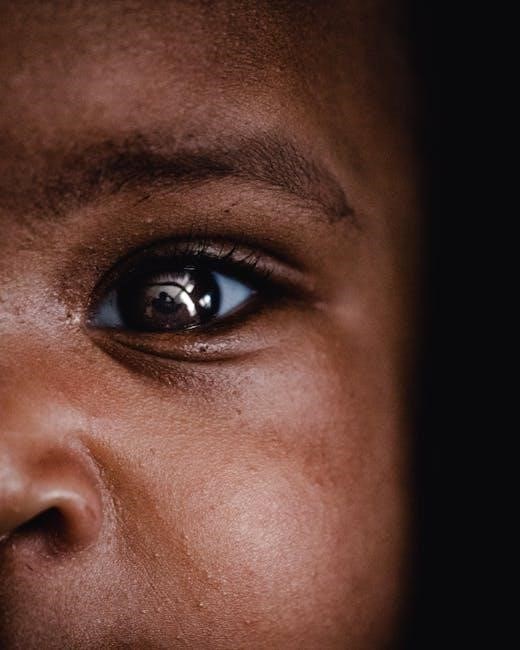Overview of “Iris Kelly Doesn’t Date”
Ashley Herring Blake’s “Iris Kelly Doesn’t Date” presents Iris‚ a romance author surrounded by coupled-up friends and family‚ leading to feelings of isolation. She meets Stevie‚ and a fake-dating scheme ensues to appease meddling friends and family. This book is a sapphic rom-com exploring modern relationships.

Plot Summary
Iris Kelly‚ a romance author in Portland‚ finds herself increasingly surrounded by love as her friends and family all seem to be coupled up in blissful relationships. Despite her outward happiness for them‚ she privately grapples with feelings of loneliness and a sense of being left behind. Tired of the dating scene and its disappointments‚ Iris declares herself done with relationships‚ preferring commitment-free hookups.
However‚ her well-meaning but persistent mother keeps trying to set her up‚ and Iris faces the added pressure of a looming deadline for her second book‚ for which she is experiencing a creative block. Seeking a distraction‚ Iris ventures out to a club‚ where she meets Stevie. Their initial encounter doesn’t exactly spark fireworks‚ but circumstances soon lead them to a mutually beneficial arrangement.
Stevie‚ an actress‚ needs to ward off her own meddling friends who are eager to see her in a relationship. They decide to fake-date‚ with Iris hoping to find inspiration for her book and Stevie aiming to appease her friends. As they act out their charade‚ they unexpectedly find themselves drawn to each other‚ blurring the lines between their fake relationship and genuine feelings‚ and forcing them to confront their individual insecurities and past hurts.

Character Analysis: Iris Kelly
Iris is a romance author‚ jaded by past relationships. Surrounded by coupled-up friends‚ she feels isolated. She’s determined to avoid dating‚ but is pressured by her family. Iris agrees to fake-date Stevie‚ hoping to reignite her writing.
Iris’s Initial Reluctance to Date
At the beginning of “Iris Kelly Doesn’t Date‚” Iris is decidedly done with dating‚ stemming from experiences with cheaters and liars. She’s frustrated by those who misunderstand bisexuality‚ viewing it as hypersexuality or greediness. Iris feels pressured to prioritize romance and settle down‚ a notion she vehemently rejects.
Her past relationships have left her emotionally exhausted‚ leading to a firm stance against dating. Despite her mother’s matchmaking attempts and subtle hints about marriage and motherhood‚ Iris remains committed to commitment-free hookups. Everyone around Iris seems to be in love‚ further highlighting her single status and contributing to her reluctance to pursue romantic relationships;
Iris finds herself crying in her Lyft rides home‚ feeling the absence of the close connections her coupled-up friends share. She misses their company‚ but their focus has shifted to their partners. This sense of isolation reinforces her decision to avoid the emotional turmoil of dating and prioritize her own well-being‚ at least initially.
Iris as a Romance Author
Iris Kelly‚ despite her aversion to dating‚ is a romance author‚ adding a layer of irony to her situation in “Iris Kelly Doesn’t Date.” This creates a central conflict: she writes about love while actively avoiding it in her own life.
At the start of the novel‚ Iris is facing an imminent deadline for her second book‚ but she’s experiencing a severe case of writer’s block. Her lack of personal experience with positive relationships hinders her ability to create compelling romantic narratives. This professional struggle mirrors her personal life‚ where she’s surrounded by successful relationships but unable to replicate that success for herself.
Her reluctance to date‚ combined with the pressure to deliver a romance novel‚ puts Iris in a challenging position. She needs inspiration‚ but she’s unwilling to open herself up to the vulnerability that comes with dating. Iris’s profession forces her to confront her own beliefs about love and relationships‚ driving the plot forward as she navigates her personal and professional lives.

Character Analysis: Stevie
Stevie‚ a key character in “Iris Kelly Doesn’t Date‚” is introduced as someone who crosses paths with Iris at Lush‚ a club in Portland. She is an actress involved in a play‚ possibly “Much Ado About Nothing‚” given references to Shakespeare within the reviews.
Stevie seeks Iris’s help to deter her meddling friends from interfering in her love life‚ leading to the fake-dating scheme. Stevie’s motivations stem from a desire for autonomy and control over her personal relationships. She wants to avoid the pressure and expectations that come with her friends’ involvement.
Stevie’s character development involves learning about romance and sex‚ potentially through her interactions with Iris. She may possess anxieties or insecurities about relationships‚ which the fake-dating scenario helps her confront. Furthermore‚ Stevie and Iris’s dynamic allows them to teach each other lessons about love and life. The play they are in together adds a layer of complexity‚ allowing them to explore romance through art.
The Fake Dating Trope
“Iris Kelly Doesn’t Date” utilizes the popular fake-dating trope‚ where two characters pretend to be in a relationship‚ often leading to genuine feelings; In this case‚ Iris and Stevie enter into a fake relationship to address specific needs in their lives. For Iris‚ it’s to combat the pressure from her friends and family to settle down and find a partner.
For Stevie‚ the fake relationship serves to ward off her meddling friends who are overly invested in her romantic life. The fake-dating scenario provides a convenient solution for both women‚ allowing them to navigate their social circles without unwanted interference.
As they navigate the charade‚ Iris and Stevie develop a genuine connection‚ blurring the lines between pretense and reality. This evolution is a hallmark of the fake-dating trope. The forced proximity and shared experiences create opportunities for them to discover unexpected aspects of each other’s personalities and form a deeper bond; This exploration of authentic emotions within a constructed scenario is central to the appeal of this trope.

Themes Explored in the Novel
“Iris Kelly Doesn’t Date” explores themes of societal pressure to couple up‚ particularly affecting Iris‚ who feels isolated despite her friends’ relationships. The novel also navigates bisexuality and relationships‚ with Iris confronting stereotypes and expectations regarding her identity and romantic choices.
The Pressure to Couple Up
The novel deeply explores the societal pressure to couple up‚ a prevalent theme that significantly impacts Iris Kelly’s emotional state. Surrounded by happily coupled friends‚ siblings‚ and parents‚ Iris feels increasingly isolated and out of sync with her peers. This pressure manifests not only in her personal life but also in her professional sphere‚ as her romance writing career contrasts sharply with her own single status.
The constant exposure to idealized romantic relationships amplifies Iris’s feelings of inadequacy‚ leading to moments of vulnerability and introspection. Her internal struggles highlight the challenges faced by individuals who do not conform to traditional relationship expectations. The pressure to find a partner becomes a central conflict‚ driving Iris’s initial reluctance to date and her subsequent involvement in the fake-dating scheme with Stevie.
Through Iris’s journey‚ the novel critiques the societal emphasis on romantic partnerships as a measure of success and happiness. It challenges the notion that being single equates to being incomplete or unfulfilled‚ advocating instead for the acceptance and celebration of diverse relationship statuses. The narrative ultimately underscores the importance of self-acceptance and finding contentment regardless of romantic involvement.
Bisexuality and Relationships
“Iris Kelly Doesn’t Date” thoughtfully delves into the complexities of bisexuality and its portrayal in relationships. Iris’s experiences challenge common misconceptions and stereotypes surrounding bisexuality‚ particularly the notion of being “greedy” or “hypersexual.” The novel confronts the prejudice and invalidation that bisexual individuals often face‚ both within and outside the LGBTQ+ community.
The narrative explores the unique challenges Iris encounters while navigating relationships as a bisexual woman‚ including dealing with partners who may not fully understand or accept her identity. Her past experiences with cheaters and liars further contribute to her reluctance to date‚ highlighting the emotional toll of navigating a world that often marginalizes or misrepresents bisexuality.
Through Iris’s journey‚ the novel advocates for greater visibility and understanding of bisexuality. It showcases the importance of authentic representation and challenges the erasure of bisexual identities in media and popular culture. By portraying Iris’s experiences with sensitivity and nuance‚ the book promotes inclusivity and encourages readers to embrace the diversity of sexual orientations and relationship dynamics. Ultimately‚ “Iris Kelly Doesn’t Date” celebrates bisexuality as a valid and integral part of the human experience‚ fostering empathy and understanding among readers.
Critical Reception and Reviews
“Iris Kelly Doesn’t Date” has garnered positive reviews‚ praised for its humor‚ heart‚ and engaging characters. Critics highlight the steamy sex scenes and the book’s exploration of emotional issues‚ appealing to fans of the Bright Falls series and rom-com readers alike. Many reviewers commend Ashley Herring Blake’s writing‚ noting her ability to create believable and genuine characters.
The novel’s refreshing perspective on modern-day relationships and clever dialogue has been well-received. Reviewers appreciate the chemistry between Iris and Stevie‚ describing their relationship as sweet and their banter as funny. Some consider it a favorite installment in the series and among their top reads of the year.
However‚ some reviewers have pointed out flaws‚ with one mentioning that the diversity felt like pandering. Despite this‚ the book is generally recommended for those who enjoy sapphic romance‚ fake dating‚ and stories featuring found families. Critics view “Iris Kelly Doesn’t Date” as a satisfying conclusion to the Bright Falls series‚ offering a lovely farewell to the characters. Overall‚ the novel has been celebrated for its wit‚ charm‚ and heartfelt romance‚ solidifying its place as a gem in the rom-com genre.
Connection to the Bright Falls Series
“Iris Kelly Doesn’t Date” serves as a satisfying conclusion to the Bright Falls series‚ offering a heartwarming farewell to beloved characters. While it can be enjoyed as a standalone novel‚ its connection to the series enriches the reading experience. The book allows readers to revisit familiar settings and characters‚ providing closure to their individual journeys and the overarching narrative of the series.
Fans of the previous books will appreciate the continuity of themes and character development‚ as well as the resolution of ongoing storylines. The novel expands upon the established world of Bright Falls‚ further exploring the complexities of relationships‚ identity‚ and community. Recurring characters make appearances‚ strengthening the sense of interconnectedness within the series.
However‚ some reviewers argue that the Bright Falls series is greater than the sum of its parts‚ suggesting that “Iris Kelly Doesn’t Date” benefits from being read within the context of the preceding novels. While it successfully concludes Iris’s story‚ the emotional impact and thematic resonance are enhanced by familiarity with the series as a whole. Ultimately‚ “Iris Kelly Doesn’t Date” provides a fitting and heartfelt conclusion to the Bright Falls series‚ leaving readers with a sense of closure and satisfaction.
